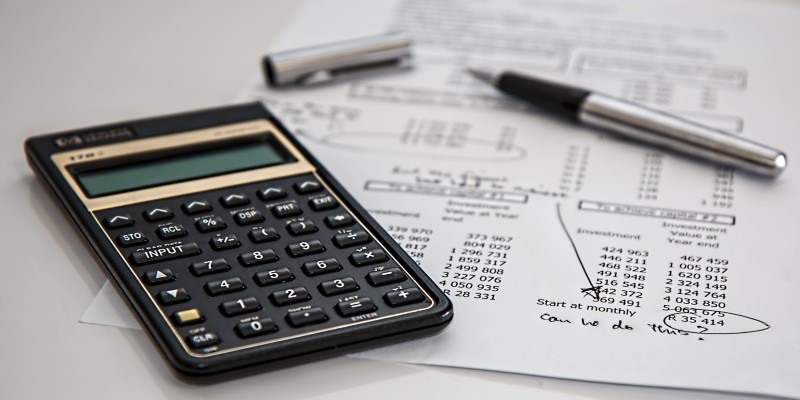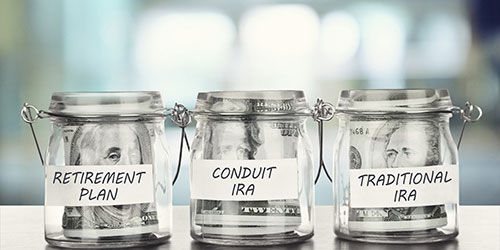Partnership vs. Corporation - A Simple Guide
Jan 25, 2024 By Triston Martin
Checking accounts may make paying bills, collecting contributions and making expenditures more straightforward. They are not all alike, though. Checking accounts for handling personal funds are exactly what they sound like: personal checking accounts. It could make sense to have an extra company checking account if you are self-employed or manage a business.
Either kind of account can be opened at an internet bank, credit union, or traditional bank. However, what distinguishes personal and business checking from one another? And why do you choose the kind of account that you require? Here's a detailed comparison of corporate and personal checking accounts.
Basics of Business vs. Personal Checking
A company's account with a bank may be employed to handle business funds. For instance, that may consist of:
- Making payments to suppliers
- Receiving money from clients and depositing them
- Paying your staff
- Making the business's essential purchases
- Paying for running costs
- Paying taxes
All kinds of business owners and company structures can open business checking accounts with banks. It is a choice for corporations, partnerships, corporations with limited liability (LLCs), and sole proprietors to open business checking accounts. To create an account, your business might not even need to be making any money yet depending on the bank.
Conversely, personal checking accounts are intended only for individual use. To put it another way, that implies things like:
- Making a deposit with your paychecks
- Paying one's own expenses, such as housing or utilities.
- Using an associated debit card to make transactions.
- Transferring funds to a personal savings account that is connected.
- Taking out cash from the ATM.
- Making individual payments to loved ones.
Business and family checking accounts appear to be different based on how each type of institution is utilized. However, there are further factors that set business checking apart.
What Separates Personal Checking from Business Checking?

Features like debit cards and check writing are available for both personal and commercial checking accounts. However, a company checking account may include capabilities unavailable in a personal checking account.
For instance, your bank could provide you access to beneficial business services such as the following when you create a business checking account:
- Employee debit cards
- Payment processing services for merchants
- Services for processing payroll
- Integrations for bookkeeping
- Services for financial advice
A company owner may require all of these resources to assist manage their enterprise more efficiently. You might be able to open various accounts in addition to company checking accounts, including an official savings account. Additionally, there may be differences between business and personal checking accounts in the following areas:
- Opening of an account
- Minimum amount required for a deposit.
- Minimum prerequisites for balance
- Charges
For instance, you usually need to provide proof of business ownership in order to create a business account. Depending on the bank, this might be a copy of your statutes of incorporation, your "Doing Business As" (DBA) paperwork, or a company license.
While some personal financial accounts may be started for just $1, depending on your financial institution or trade union, opening an account for a business may cost $500, $1,000, or more. In order to avoid paying a monthly maintenance charge, you might also need to keep your account balance at a higher level. Company checking accounts may have more or higher total fees than personal checking accounts.
A Business Checking Account: Who Needs One?

It might make sense to keep an extra current account for your company's finances if you are a business owner for a variety of reasons. You may consider creating a business financial account if you're curious about any of these things.
Simplified Bookkeeping
First off, having only one dedicated account for the inflow and outflow of funds makes it simpler to monitor the financial status of your company. To accept payments from clients, pay suppliers, and pay for running costs, you can open a company checking account. This may lessen the strain associated with bookkeeping. If your bank has connection capabilities that let you link company bank accounts to your payroll or bookkeeping software, you may further streamline accounting. If you have staff, this might help you handle a duty that you might otherwise detest.
Streamlined Tax Reporting
Keeping your records organized when it comes to time to pay taxes might be made easier if you have a separate company checking account and want to deduct business costs. To find deductible costs, you don't need to go through transactions from your company and personal life. Additionally, you currently hold a paper record of company expenses in case you are ever audited.
Accounting can be further streamlined if a financial institution has connection options that allow you to connect your company's bank account to payroll processing or bookkeeping software. If you have employees, this may make it easier for you to perform a task that you would otherwise hate.
Expediting Tax Returns
If you want to write off business expenses and have an individual checking account, keeping your records structured may make paying taxes easier. You do not have to go through dealings from your personal and business life in order to determine deductible charges. In case you were ever audited, you presently have a written record of business spending.
How to Select a Checking Account for Your Business?
Every company checking account is unique, just as personal and commercial checking accounts differ from one another. To choose the solution that best suits your demands, it's crucial to browse around and compare company checking services.
The following are some of the most crucial factors to take into consideration when comparing checking accounts:
- While some banks require you to create business checking accounts in person, others let you do it online. When creating a bank account, take into mind the kinds of documents you'll need to prove your company's legitimacy.
- When it comes to personal and corporate checking accounts, fees are always a crucial factor to take into mind. Think about the monthly maintenance fees for your business account in addition to additional charges like overdraft fees or merchant service fees.
The Bottom Line!
Business checking accounts have a different function in financial management than personal checking accounts. Business debit cards can provide capabilities that personal examining accounts do not, despite some similarities between them. You may monitor your company's finances on a daily and long-term basis by maintaining one or more commercial bank accounts, such as a savings account or a checking account.





